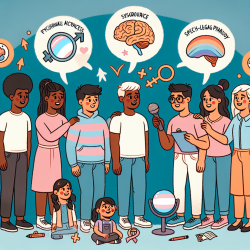Introduction to Mismatch Negativity (MMN)
The mismatch negativity (MMN) is an auditory evoked potential that provides insights into cortical sound processing. It is elicited by any discernible change in a repetitive auditory stimulus. This potential is particularly useful in assessing children with cochlear implants (CIs) as it does not require active attention, making it ideal for young children or those with additional challenges.
Research Insights
A recent study published in the International Archives of Otorhinolaryngology explored MMN characteristics in children with cochlear implants. The study aimed to identify MMN features such as latency, amplitude, and wave area, and examine their associations with language development, speech perception, and family involvement.
The study included 34 children, divided into a study group of cochlear-implanted children and a control group of normal-hearing children. The results showed that the occurrence of MMN was 73.3% in the control group and 53.3% in the study group. Interestingly, the MMN responses in children with cochlear implants were similar to those of normal-hearing children, with no significant differences in latency, amplitude, or wave area.
Implications for Practitioners
For speech-language pathologists and audiologists, these findings highlight the potential of using MMN as an objective measure to assess auditory discrimination and the effectiveness of auditory training in children with cochlear implants. The study suggests that MMN can serve as a valuable tool for monitoring auditory development and rehabilitation progress.
Practitioners should consider incorporating MMN assessments into their evaluation protocols for children with cochlear implants. This can provide a more comprehensive understanding of a child's auditory processing capabilities and help tailor intervention strategies to optimize outcomes.
Encouraging Further Research
While this study provides valuable insights, it also underscores the need for further research. Future studies could explore larger sample sizes, different age groups, and diverse auditory stimuli to enhance our understanding of MMN in cochlear-implanted children. Additionally, investigating the role of family involvement in auditory rehabilitation could offer new perspectives on supporting children's language development.
Conclusion
The study on MMN in children with cochlear implants demonstrates that these children exhibit similar auditory processing capabilities to their normal-hearing peers. This reinforces the importance of using data-driven approaches in therapy and encourages continued research to improve outcomes for children with hearing impairments.
To read the original research paper, please follow this link: Mismatch Negativity in Children with Cochlear Implant.










